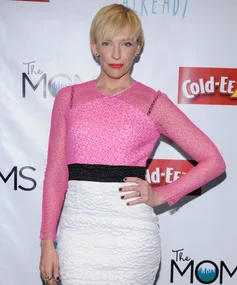New research published in The European Journal of Work and Organizational Psychology suggests that women who are more assertive and clear about their expectations at work, as well as not retreating from their demands, are paid more than women who are more accommodating.
The study, small in its focus-group size (only 375 people participated), analysed the participant’s education and employment tenure against their current income and how often they’ve been promoted from an objective perspective. Then, researchers also looked at how someone perceives their own education, experience and performance against their own income and rank.
“We found that women aren’t aware that more agreeable women are being punished for being nice,” says researcher Dr Michael Biron, who works for the University of Haifa’s Department of Business Administration.
“We found that women were consistently and objectively status-detracted, which means they invest more of themselves in their jobs than they receive,” Dr. Biron says.
“The nice women we polled in our study even believed they were earning more than they deserved.”
This left researchers stunned.
“This blew our minds,” Proessor Sharon Toker of the Tel Aviv University Coller School of Business Management, explains.
“The data shows that they earn the least – far less than what they deserve. And they rationalize the situation, making it less likely that they will make appropriate demands for equal pay.”
Not only that, but this study also drew a dark line under the fact that despite assertive women trumping accommodating women in the cash stakes, males – assertive or accommodating – earn more than women, period.
But does this research finding surprise you? Three readers of The Weekly were quick to weigh in.
“Although I am bothered by these results, I am not surprised,” Katie, 23, tells us.
“I definitely consider myself one of these ‘nice’ women in a professional industry, and I would worry about coming across negatively or even aggressive in demanding a higher salary from a superior.”
Sophie, 35, agrees. ” I’ve always been shy, so at work that comes across as ‘passive’ and ‘nice’,” she tells us.
“I’m a hard worker but can often be overlooked for promotions because I’m not the person who makes a point of getting noticed at meetings.”
“It bothers me as I’ve been in my industry for almost a decade and my managers are often years younger than me. However, they’re often very assertive and confident, so it makes sense that they’re in those positions.”
“I wouldn’t say they’re not nice, though – they’re just more willing to speak their mind – ball-busters or go-getters if you will.”
However, Rachel, 35, has a slightly different take on things, calling out hard work as the only real factor that should determine if someone gets a pay rise or not.
“I think some ballsier, more outspoken members of staff are much more likely to get a pay rise; they will actually challenge employers who sadly often won’t give raises on merit, particularly when they’re trying to number crush,” she says.
“If you’re nice, you do tend to put your head down, work extremely hard and get on with it – which should get you a raise – in theory. Of course, this might not even be anything to do with being too nice.”
“There’s currently a climate of fear in many industries about redundancies. And this makes people feel even more anxious about asking for a raise and many are under the illusion ‘You’re lucky to even have a job’, which is definitely a worrying way of thinking and trend.”
“Hard work should always shine through over all else.”
What do you think: do nice women get less in the workplace than their more assertive counterparts by telling on our Facebook page.



